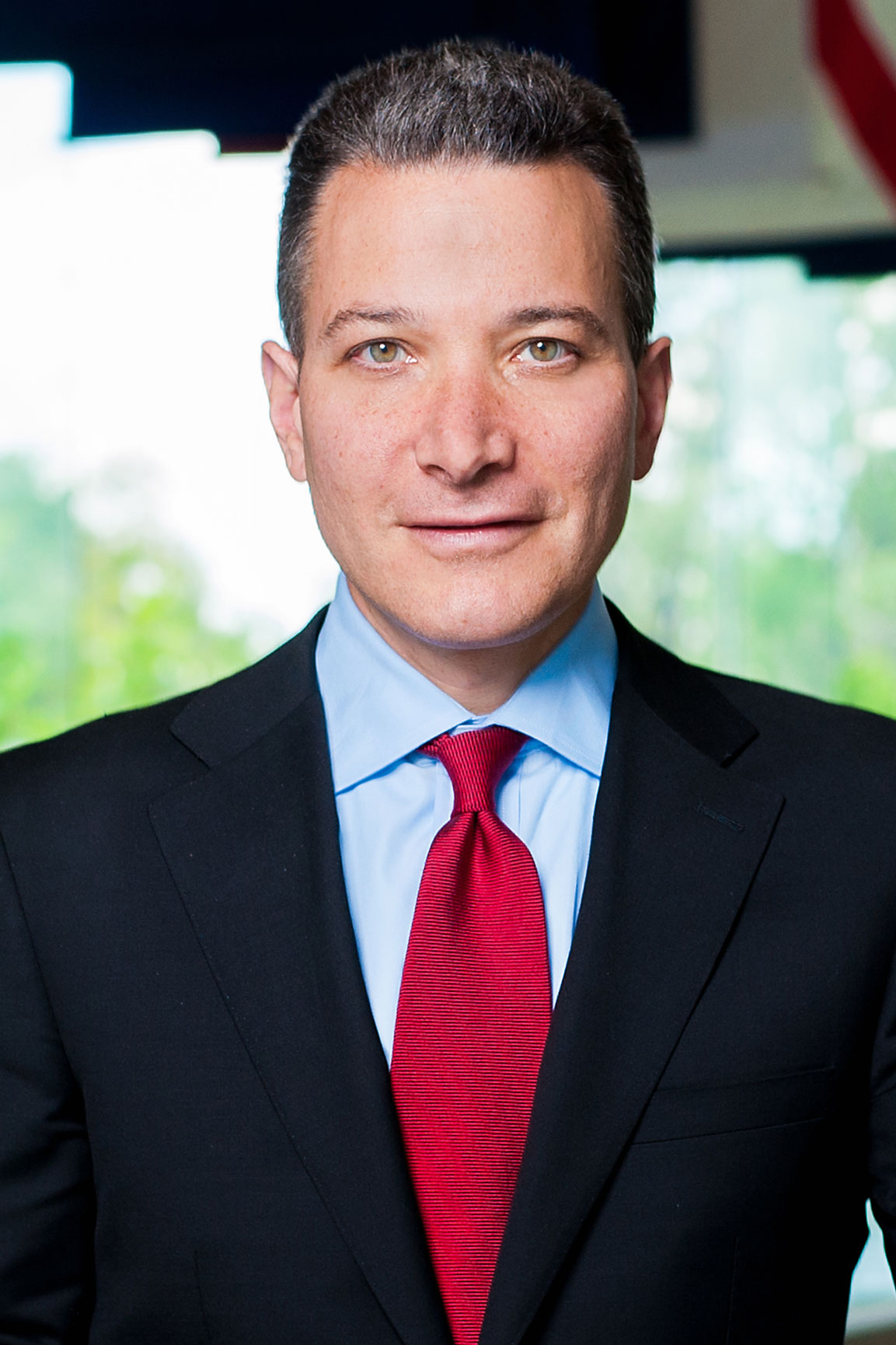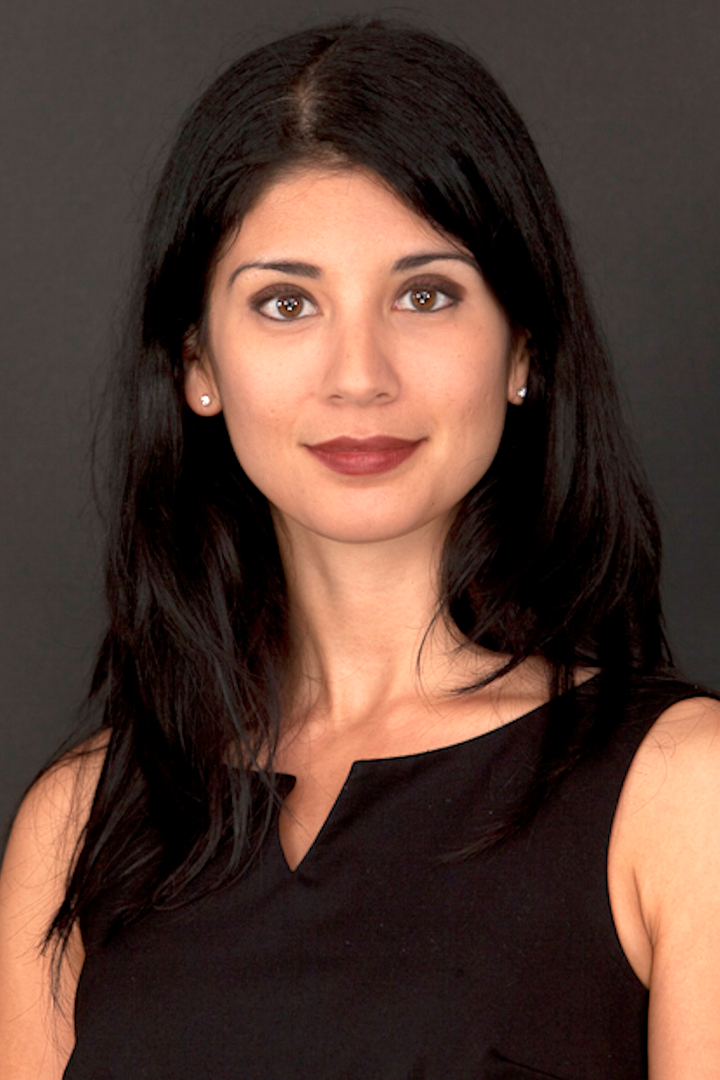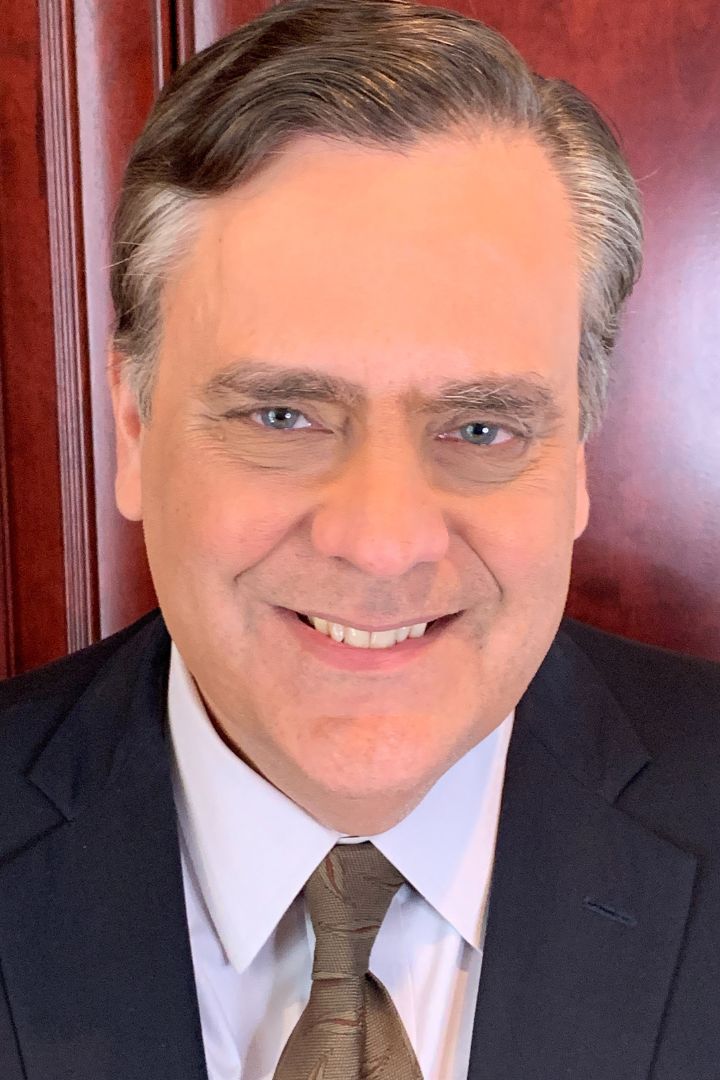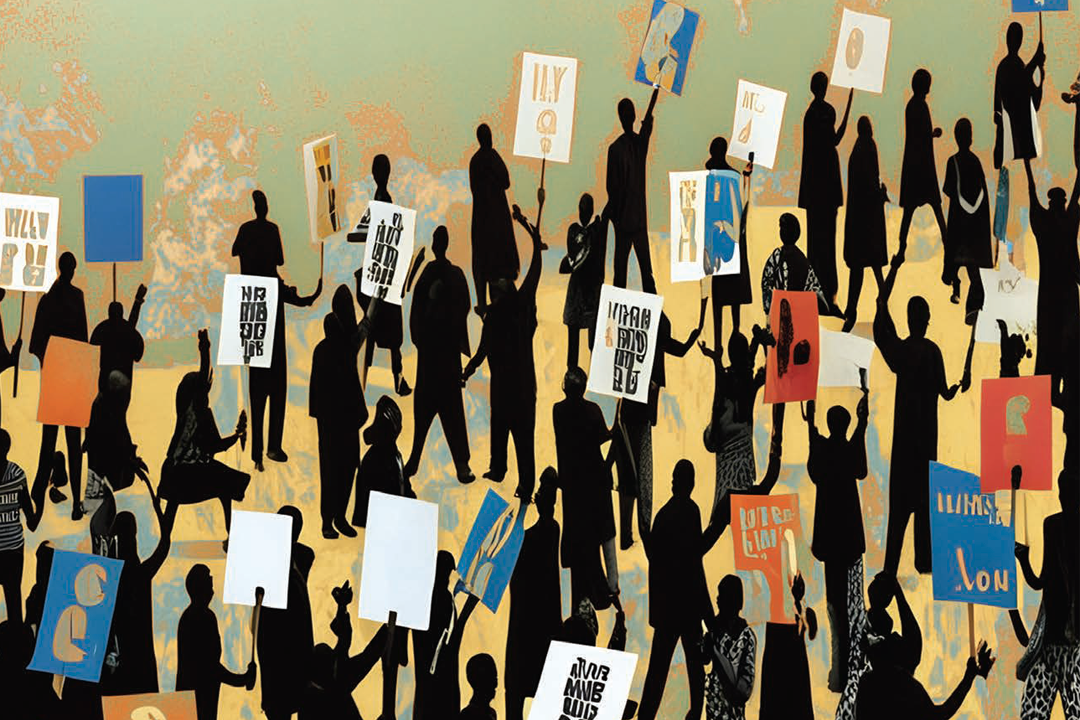By Sarah Kellogg
University campuses teemed with protesters and encampments last spring, becoming theaters for fierce discontent yet largely peaceful protest. The demonstrations illuminated how deeply polarized campuses are, not only about the Israel-Hamas war but also about how best to safeguard free speech at such a politically charged moment. GW is uniquely positioned for this moment. The law school’s deep bench of First Amendment experts allows the university to host much-needed conversations to explore the intersection of protest, free speech, and academic freedom. GW Law’s team of scholars and thought leaders are at the forefront of the debate about approaches to free speech at public versus private universities, the differences between free speech and fearless speech, and the ever-present danger of censorship.
"One of the missions of a university is to provide opportunities to model how legal problem-solvers can hold productive dialogue across significant differences. As a law school, GW Law has a responsibility to educate future leaders about the fundamental rights guaranteed by our Constitution and to encourage students to consider the essential constitutional questions, like the principle of free speech, that animate our university and our nation."
Dean Dayna Bowen Matthew
Dean and Harold H. Greene Professor of Law
Here, we continue that conversation by featuring GW Law’s prominent First Amendment scholars to further the national dialogue about free speech on campus and in society. They share their thoughts about the critical issues that have re-emerged as a consequence of the recent student protests, and the history and culture that shape any discussion of free speech.

Jeffrey Rosen
An Indispensable Freedom
Throughout American history, those on both sides of the political spectrum have challenged the First Amendment paradigm. In the United States, speech can only be banned if it is intended to and likely to cause imminent violence, said Professor Jeffrey Rosen, who also serves as president and CEO of the National Constitution Center.
That principle—recognized by the U.S. Supreme Court and articulated by justices such as Louis Brandeis—dates back to the founding period when Presidents Thomas Jefferson and James Madison questioned the Alien and Sedition Acts. The belief has always been under siege from a wary public, government, and private sector.
“For universities, it is urgently important to defend the First Amendment and not allow one group of students to drown out the speech of another, and to not take sides in the great political controversies of our day,” said Rosen. “Universities must remain neutral platforms for free speech, and only then can they maintain their function as beacons of light for the free exchange of ideas.”
Many university presidents who have defended First Amendment principles have been successful in preventing hecklers’ vetoes and invasions of the rights of students and faculty to speak and learn, said Rosen. “Other universities have struggled with this balance,” he added. “It’s more important than ever to remember the basic framework of First Amendment law in order to maintain the teaching function of the university.”
Rosen said it is fundamental to teach this generation of students to embrace the principles of the First Amendment because it is the United States’ “greatest constitutional achievement,” and one that distinguishes our nation from other countries.
“We protect free speech more vigorously than any other country in the world,” said Rosen. “Our protections for speech have allowed a greater exchange of ideas than any other country in human history, and at a time when those ideals are under assault from all sides, it’s very important to defend them.”

Mary Anne Franks
Free Speech v. Fearless Speech
Mary Anne Franks, the Eugene L. and Barbara A. Bernard Professor in Intellectual Property, Technology, and Civil Rights Law, doesn’t share her colleague’s strong reverence for the First Amendment. She believes the amendment is flawed because it has been unevenly applied throughout the nation’s history.
“What we tell ourselves about the American tradition, and what most people believe, is that in the United States we uniquely have provided protections for free speakers, and that we believe in siding with the downtrodden, the opposed, and the marginalized,” said Franks. “Actually, that is just not true. We think we’ve been standing by fearless speakers. Instead, it’s been things like Nazis and pornographers. When you scratch the surface, it’s not people speaking boldly who are protected, it’s people speaking controversially.”
Franks spotlights the concept of “fearless speech” as a response to this moment. Borrowing from the ancient Greeks and French philosopher Michel Foucault, she believes the country should strive for a new standard of fearless speech, characterized by courage and directed at those in power—criticizing authority rather than praising it.
“Fearlessness in speech isn’t just about saying something offensive that might provoke a violent reaction. It’s deeper than that,” said Franks. “True fearless speech requires sincerity. It can’t be anonymous or just playing devil’s advocate. The speaker must fully identify with what they’re saying. By its nature, fearless speech challenges the status quo.”
The line between the two is not always clear, suggested Franks. For instance, events like the January 6 riot at the Capitol raise difficult questions: Were the protestors engaging in fearless speech by putting their lives on the line for what they believed was a fight against tyranny? But fearless speech cannot involve destroying property or threatening others—it must remain non-violent to qualify as true criticism.
“Ultimately, while it’s possible to establish boundaries between fearless and reckless speech, these distinctions are not always easy to make,” said Franks. “The complexities of human behavior and intent often leave room for ambiguity, and the challenge lies in carefully discerning where fearlessness ends and recklessness begins.”

Jonathan Turley
The Evolving Threat of Censorship
Today's attacks on the first amendment are not new and are not restricted to the Israel-Hamas protests of the past year. They have precedents in U.S. history, argued Jonathan Turley, the J.B. and Maurice C. Shapiro Professor of Public Interest Law.
The United States has gone through periods where “rage rhetoric” has become “state rage,” resulting in a crackdown on free speech. In fact, Turley said, many leaders have used the same excuses for censorship and blacklisting today, including terms like “fake news” or “false news,” that were used to rationalize censorship at the founding of the United States.
Yet, Turley believes that the current anti-free speech movement is different in size and sophistication than those of the past. The contemporary alliance assembled against free speech—joined by the government, corporations, academia, and the media—poses a greater threat.
“The current anti-free speech movement originated in higher education and then metastasized in the government and the media,” said Turley. “At the same time, the anti-free speech movement in Europe has [grown]. In countries like Germany, France, and the United Kingdom, free speech is in a freefall with an ever-widening array of arrests for speech that is deemed inciteful, inflammatory, or degrading.”
The assumption that the United States will weather the current “age of rage” without lasting damage to this “indispensable right” is a dangerous conceit, Turley said. Madison referred in 1800 to speech prosecutions as the “monster” that dwells within society. It rises at times when people are angry or afraid, and unleashing it has always led to great injury of political dissidents and minority groups.
“We are living through not just an age of rage but a certain crisis of faith,” said Turley. “It takes a great deal to convince a free people to give up freedoms. They have to be afraid, very afraid. The anti-free speech movement has preyed on those fears by convincing citizens that free speech is now a threat to them and even the democracy.”
“These are the same voices that we have heard throughout our history, often using the very same terms to justify the silencing of others,” added Turley, noting that technology has upped the stakes. “However, they now have the means to achieve a far greater degree of speech regulation.”

Dawn Nunziato
Students First
As a principle, free speech cannot be sacrosanct, blindly disconnected from and standing above the people and communities that animate and protect the right, believes Dawn C. Nunziato, the Pedas Family Endowed Professor of IP and Technology Law and the William Wallace Kirkpatrick Research Professor. It is essential that universities, in particular, listen to those who feel harmed by others’ speech in order to make responsible decisions about where to draw the line when necessary.
“I think we should aim to protect civil discourse and even impassioned and heated civil discourse, especially on matters of public importance, including criticisms of national, international, and university leaders,” said Nunziato, “so long as this doesn’t cross the line to becoming discriminatory harassment.”
Nunziato said that universities cannot determine when a violation exists without gaining more information about how student groups and other members of their community are affected by others’ speech. For example, in recent Palestinian protests, there were situations in which Jewish students began to feel more than unwanted on campus, they felt unsafe.
“We need to be as inclusive as possible in hearing from students about what our rules should be, what sort of conduct and speech should be protected and what sort of speech conduct should not be protected,” said Nunziato. “I think that having a process that is as inclusive as possible—having students sit on panels and boards that come up with university policies—is important.”
Some say the current generation of students is exceptionally “sensitive” to criticism, frequently talking about being triggered by both disagreeable and seemingly even non-controversial speech, but Nunziato takes issue with that characterization. This is not a generation of so-called “snowflakes,” and universities have a responsibility to respond to harassment in its many forms, she said.
Of course, what constitutes discrimination or discriminatory harassment can be a subjective test. Unwelcome conduct based on shared ancestry or ethnic characteristics can be offensive and so severe or pervasive that it limits or denies a person’s ability to participate in or benefit from an educational program or activity, noted Nunziato. “We must listen to our students and find solutions that serve their needs and respect their concerns,” she said. "No one should feel unwelcome on our campuses."

Mary-Rose Papandrea
Free Speech on Campus
Universities in the United States face a Catch-22 in protecting the First Amendment and their students from its potential harms. Public universities cannot regulate speech because they are required to adhere to the First Amendment, which applies to government institutions. At the same time, those institutions are able to impose time, place, and manner restrictions as long as those restrictions are reasonable and designed to prevent significant disruption.
“What I hope comes out of this very difficult and fraught time is that we appreciate that there are costs and benefits to the freedom of speech, and that everyone is able to see that,” said Mary-Rose Papandrea, the inaugural holder of the Burchfield Professorship of First Amendment and Free Speech Law, beginning the fall of 2025. “Everyone would like to be able to express themselves, and we have to figure out how we can give that space for people to express themselves on core political issues.”
Private universities like GW are not government entities, and they are not required to uphold the stern interpretation of the First Amendment like their public peers. They can impose stricter limits on speech even beyond those for time, place, and manner, but if they receive federal funding, like GW and many private institutions do, they must adhere to federal Title VI requirements to honor free speech for students and faculty.
Title VI of the Civil Rights Act prohibits discrimination on the basis of race, color, and national origin in programs and activities receiving federal financial assistance.
“Private corporations and other private actors are not required to follow the First Amendment, but because we operate in a university setting, we have a commitment to robust discourse,” said Papandrea. “The freedom of speech runs very deeply in academia.”
Papandrea said organizations such as the American Association of University Professors have tried to help universities find middle ground in crafting policies balancing academic freedom and free speech, but each institution will respond in a manner that befits their schools and students.
“I think universities are going to have a lot more freedom to be proactive in passing restrictions in an attempt to navigate the conflict between wanting to allow for robust discourse on campus, while also avoiding Title VI violations,” Papandrea concluded.
An Evolving Future
While there is little consensus today on what the appropriate balance is between free speech and the harms that can result from that freedom, there is wide agreement that this is an evolving field as progressives and conservatives have flipped sides over the years depending on the debate and the speech. And there is often a dramatic, public flurry on both sides of wrapping oneself in the flag and the First Amendment to protect certain speech at certain times.
“Everyone would like to be able to express themselves, and we should be able to,” said Papandrea. “As a society, we have to figure out how we give space to people to express themselves on core political issues. My hope is that we no longer have conservatives or liberals with knee-jerk reactions: ‘I love the First Amendment. I hate the First Amendment.’ No one is served by that.”
Additionally, in the age of artificial intelligence and deepfakes, the line between free speech and reckless speech is increasingly blurring, and the dispute often moves at the speed of light. The challenge lies in distinguishing between the two, particularly when any statement or image could potentially provoke outrage or even threats of harm before the university even has time to respond.
Still, the dangers ahead of censorship are real. Technology allows governments and private companies (and universities, as well) to make sweeping judgements that could roundly impact students and their right to free speech, which many consider a basic human right.
“Again, it is now in vogue to combat speech in the name of democracy, an oxymoronic notion that cloaks viewpoint intolerance in the language of altruism and patriotism,” said Turley.
Ultimately, universities will be left to chart their own path through the maze, and Dean Matthew is hoping that GW Law can serve as a welcoming forum where students, faculty, and experts in the First Amendment can come together to enjoy respectful conversations, explore free-speech challenges, and continue to make an impact on the most pressing issues of our time.
Scholarship Advances Constitutional Thought Leadership
GW Law is at the forefront of scholarship in constitutional law, shaping public policy and enlivening society-wide conversations on divisive issues—from the free speech rights of protesters to the threat of artificial intelligence to individual privacy.
As always, the law school’s pioneering scholarship is driven by its distinguished professors who have made significant contributions to the field of law and public understanding of U.S. constitutional history. In 2024, GW Law faculty authored three books on the topic:
In Fearless Speech, Professor Mary Anne Franks explores the role of the First Amendment in American democracy. While free speech is hailed as a cornerstone of freedom, Franks argues that it has been co-opted by powerful interests to often support misogyny, racism, and corporate greed.
Through memorable examples—from civil rights leaders to #MeToo advocates—Franks, the Eugene L. and Barbara A. Bernard Professor in Intellectual Property, Technology, and Civil Rights Law, champions the idea of “fearless speech”: voices that risk everything to expose injustice. The book urges readers to rethink what kind of speech should be protected and promoted in a democracy.
In The Indispensable Right, Professor Jonathan Turley places the current attacks on free expression, in particular on the First Amendment, in a historical, legal, and political context. Turley offers examples of the systemwide effort to bar opposing viewpoints on subjects ranging from racial discrimination to police abuse, from climate change to gender equity.
Using examples from 250 years of US history, Turley, the J.B. and Maurice C. Shapiro Professor of Public Interest Law, details accounts of the struggle for free speech in America. He features the stories of people who refused to yield to authority as they sought to protect their free speech rights.
In The Pursuit of Happiness: How Classical Writers on Virtue Inspired the Lives of the Founders and Defined America, Professor Jeffrey Rosen delves into the lives of five influential Founders—John Adams, Benjamin Franklin, Alexander Hamilton, James Madison, and George Washington—analyzing their understanding of “the pursuit of happiness” as a quest for virtue.
Inspired by classical philosophers, the Founders saw happiness as lifelong moral improvement, not fleeting pleasure to satisfy a particular moment. Rosen, president and CEO of the National Constitution Center, explains how this ideal shaped their personal and political lives, offering a compelling look at the foundation of American democracy and its enduring relevance.
Rosen’s book made the New York Times bestseller list. A prolific author, his other books include the New York Times bestseller Conversations with RBG: Justice Ruth Bader Ginsburg on Life, Love, Liberty, and Law, as well as biographies of Louis Brandeis and William Howard Taft.


